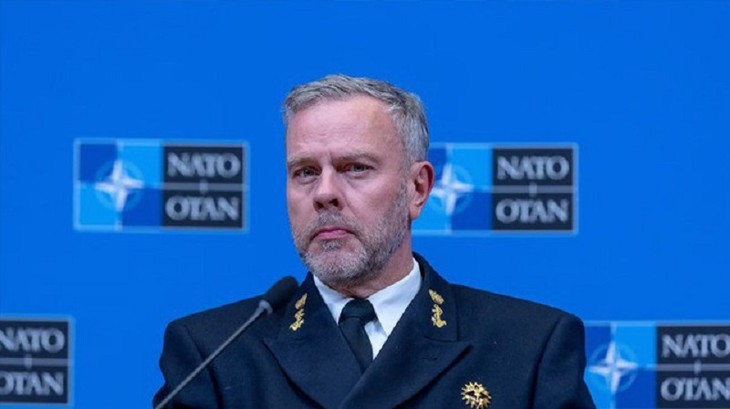Since its inception, NATO has expanded its membership from 12 to 32 countries and is ambitious to expand its influence beyond the Atlantic.
Expansion and ambition
April 4, 1949, in Washington, DC (USA), US President Harry Truman and leaders of Canada and 10 European countries, including France, the UK, Italy, Belgium, Netherlands, Luxemburg, Denmark, Norway, Iceland, and Portugal signed an agreement to establish the first military alliance located on both sides of the Atlantic Ocean. The Treaty took effect in September that year. In the context of international relations at that time, when the world had just experienced the devastating Second World War and was preparing to enter the Cold War, the establishment of NATO was a historical turning point for the Euro-Atlantic region. Within six years, NATO successively admitted Turkey and Greece (in 1952), and West Germany (in 1955).
NATO was expanded rapidly after the end of the Cold War in the early 1990s, with an Eastward strategy to admit Central and Eastern European countries that were part of the Warsaw Pact. Within 10 years, from 1999 to 2009, NATO admitted 12 more members in Central Europe, Eastern Europe, and the Balkans. This expansion reached a turning point with the outbreak of the Russia-Ukraine conflict in February, 2022. Two Nordic countries, Finland and Sweden, abandoned their centuries-old policy of neutrality to join NATO, bringing the total number of members of the military alliance to 32.
Robert Benson, political analyst at the Center for American Progress (CAP), said NATO brings together most countries in Europe and North America, including many countries with a hostile past, to join a binding political-military alliance. Article 5 of the Treaty commits signatories to "collective defense", the biggest historical achievement of this organization.
Benson said: "The history of Europe has been one of well, perpetual conflict. Up until the realization of NATO 75 years ago, in 1949, which has maintained a really durable peace within the Euro-Atlantic zone -- so, I think that to me more than anything else is the historic nature of the accomplishment.”
Along with tripling its size since its founding, NATO has increased its ambitions, especially after the Cold War ended and NATO's main counterweight – the Warsaw Pact – dissolved. NATO’s military campaign in Yugoslavia in 1999 and its engagement in wars in Iraq, Afghanistan, and Syria have created controversy within the organization about the meaning of "defense". Currently accounting for 70% of the global defense budget, NATO continues to be the world's largest military bloc. Its intention to expand its security partnerships beyond its traditional geographic space in the Northern Atlantic region is creating concerns among many countries about a global security imbalance.
NATO and uncertainties in US politics
As the largest military power in NATO, which contributes nearly two-thirds of the alliance's budget, the US has a decisive voice in NATO. Any changes in the US’s foreign and security policies have a major impact on NATO's organization and operations. Nicholas Lokker, a researcher at the Center for a New American Security (CNAS), says current US President Joe Biden is a typical Atlanticist politician, who attaches great importance to NATO. But Lokker believes the US’s NATO allies should be concerned about the future of the bloc if former President Donald Trump wins the US presidential election this year.
In his first term (2016-2020), Trump often criticized NATO and some of its members for insufficient contributions to NATO. During recent campaigning Trump has continued his criticism, causing NATO allies to worry the US may abandon its NATO commitments if Trump wins the election.
 Chairman of NATO's Military Committee General Rob Bauer (Photo: Daily Messenger) Chairman of NATO's Military Committee General Rob Bauer (Photo: Daily Messenger) |
The election is still hard to predict, but in the current unstable world, NATO's role is extremely important to the US. Chairman of NATO's Military Committee General Rob Bauer says that, in some respects, it was reasonable for Trump to ask NATO members to increase their defense budgets.